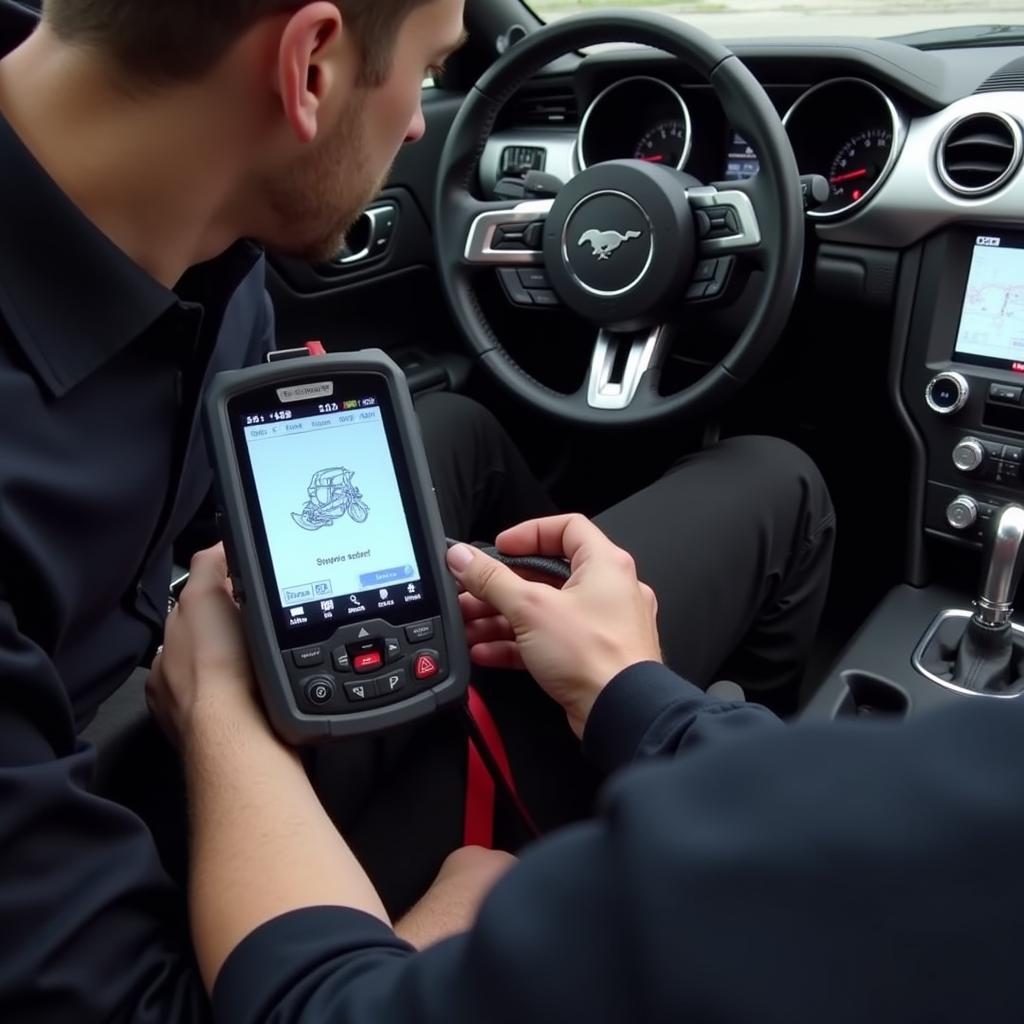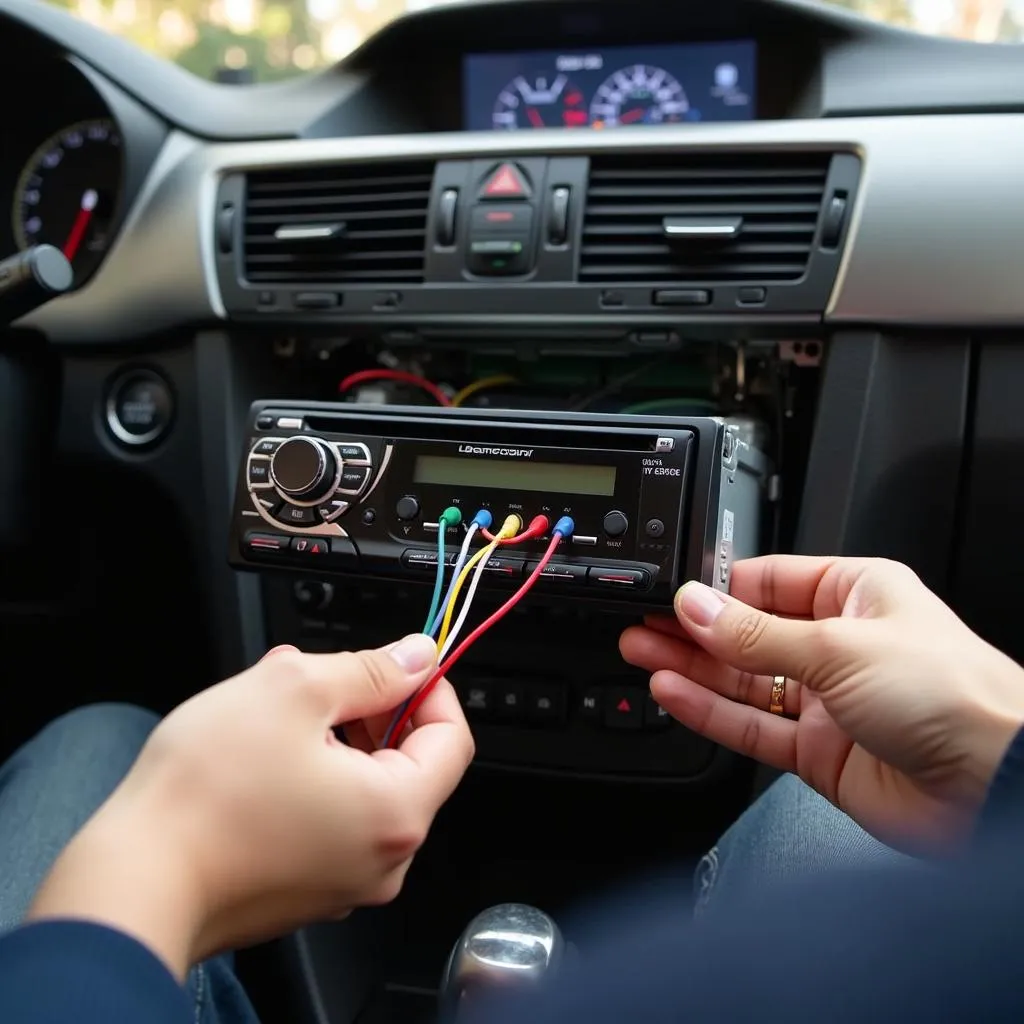Let’s face it; a crystal-clear sound system can transform your daily commute or road trip from mundane to magnificent. However, not all cars come equipped with the latest Bluetooth technology for seamless audio streaming. That’s where Bluetooth receivers swoop in as the perfect solution, breathing new life into your car’s audio system without breaking the bank.
As an automotive electrical engineer specializing in remote diagnostics, programming, and software installations, I’ve seen my fair share of car audio woes. Trust me, choosing the right Bluetooth receiver can be a game-changer, offering a hassle-free way to enjoy your favorite tunes and podcasts on the go.
Understanding the Need for a Bluetooth Car Receiver
Before we delve into the crème de la crème of Bluetooth receivers, let’s address the elephant in the room—why you might need one in the first place. Imagine this: you’re cruising down the highway, your phone buzzing with an urgent call. Fumbling for your phone while navigating traffic? Not exactly the safest scenario.
A Bluetooth car receiver lets you effortlessly answer calls, stream music wirelessly, and even access GPS navigation, all while keeping your hands on the wheel and your eyes on the road. They act as a bridge between your car’s audio system and your smartphone, unlocking a world of convenience and entertainment.
Common Car Audio Issues and Their Causes
Just like any other component in your vehicle, car audio systems aren’t immune to occasional hiccups. Some common culprits behind these audio woes include:
- Loose or damaged wiring: Over time, vibrations and wear and tear can wreak havoc on your car’s wiring, leading to static, intermittent audio, or complete silence.
- Blown speakers: Pushing your speakers to their limits with booming bass can sometimes lead to their untimely demise, resulting in distorted or muffled sound.
- Faulty head unit: The head unit is the brain of your car audio system, and a malfunctioning one can cause various issues, from Bluetooth connectivity problems to complete system failure.
- Software glitches: In our increasingly digital world, even car audio systems rely heavily on software. A software glitch in your head unit can disrupt Bluetooth pairing, audio settings, and other functions.
Identifying and Troubleshooting Car Audio Problems
Before you jump the gun and invest in a new Bluetooth receiver, it’s always wise to rule out any underlying issues with your car’s audio system. Here’s a quick rundown of some common troubleshooting steps:
- Check the basics: Ensure your car’s audio system is powered on, the volume is turned up, and the correct audio source is selected. It sounds obvious, but you’d be surprised how often these simple checks do the trick.
- Inspect the wiring: If you’re comfortable with a bit of DIY, carefully examine the wiring connections at the back of your head unit and speakers. Look for any loose or damaged wires that might be causing the problem.
- Consult your car’s manual: Your car’s manual is a treasure trove of information, often including troubleshooting tips for common audio system issues.
- Utilize diagnostic software: For more complex issues, professional-grade diagnostic software like those offered by Cardiagtech can pinpoint the root cause of the problem with pinpoint accuracy.
Essential Tools for Car Audio Repair
Whether you’re a seasoned DIY enthusiast or prefer leaving it to the pros, having the right tools at your disposal is crucial for tackling car audio repairs. Here’s a handy list of essentials:
- Digital multimeter: A must-have for testing electrical connections and diagnosing faulty components.
- Wire strippers and crimpers: Essential for repairing or replacing damaged wiring.
- Torx and socket wrench set: Most car audio systems are secured with Torx or hex screws, so having the right tools is vital for accessing internal components.
- Panel removal tools: These handy tools prevent damage to your car’s interior trim when removing panels to access speakers or wiring harnesses.
Installing a Bluetooth Receiver: A Step-by-Step Guide
Once you’ve determined that a Bluetooth receiver is the way to go, the installation process is surprisingly straightforward, even for those who aren’t automotive wizards.
Step 1: Choose the Right Bluetooth Receiver. Consider factors like sound quality, ease of use, and additional features.
Step 2: Locate an appropriate power source. Most receivers draw power directly from your car’s cigarette lighter socket or a dedicated 12V accessory outlet.
Step 3: Connect the receiver to your car’s audio system. This usually involves using an aux-in cable or connecting directly to the head unit’s auxiliary input.
Step 4: Pair your smartphone with the Bluetooth receiver. Enable Bluetooth on your phone and select the receiver from the list of available devices.
FAQs About Bluetooth Car Receivers
Here are answers to some frequently asked questions about Bluetooth car receivers:
Q: Will a Bluetooth receiver drain my car’s battery?
A: Bluetooth receivers draw minimal power and shouldn’t significantly impact your car’s battery, especially when the engine is running. However, it’s always a good practice to disconnect the receiver when not in use for extended periods.
Q: Can I use multiple devices with my Bluetooth car receiver?
A: Most Bluetooth car receivers support multipoint pairing, allowing you to connect two devices simultaneously. However, keep in mind that only one device can stream audio at a time.
Q: What is the range of a Bluetooth car receiver?
A: The Bluetooth range typically extends up to 30 feet, depending on the receiver and potential obstacles.
Conclusion
Upgrading your car’s audio system with a Bluetooth receiver is a simple yet effective way to enjoy seamless wireless audio streaming, hands-free calling, and a plethora of other convenient features. By understanding the common car audio issues, following the troubleshooting tips, and carefully selecting the right Bluetooth receiver, you can transform your daily commute into an enjoyable and connected experience.
If you’re unsure about diagnosing or fixing car audio problems yourself, don’t hesitate to seek professional assistance. CARDIAGTECH offers expert remote diagnostics, programming, and software installation services to get your car’s audio system back on track. Contact us today for a seamless and reliable solution.


